
Sampling local cuisine can be one of the best parts of going on holiday.

Sampling local cuisine can be one of the best parts of going on holiday.
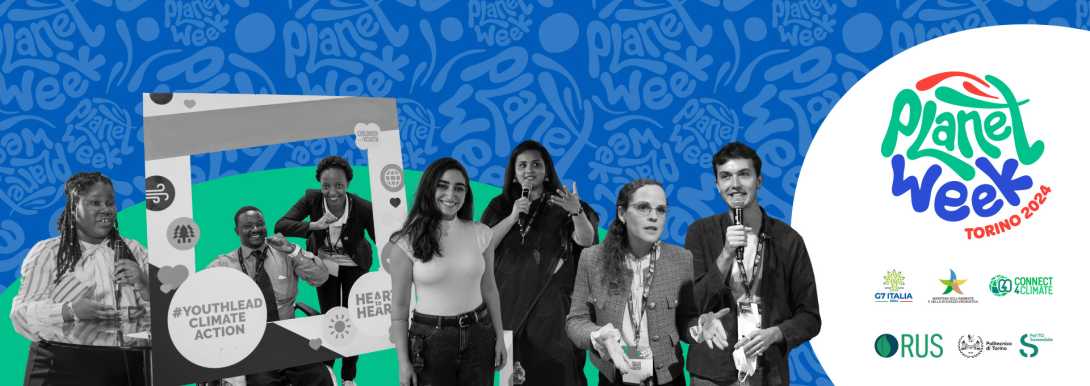
Do you have revolutionary ideas on how to accelerate climate action, build a circular economy, scale up renewable energy, or cut the waste out

“Spero spera” is an old Italian saying that means “As long as I breathe, there is hope.” The hope within young people in Africa is that one da

The food we eat traverses great distances – sometimes hundreds or thousands of miles – to reach our plates.

On March 28, the first-ever MENA Climate Week will convene stakeholders from across the Middle East and North Africa (MENA) to assess the prog

Before the COVID-19 crisis, tourism was one of the most important commerci

Over time, climate change is contributing to issues around the world like hunger from failed crops and displaced families from flooding. Cutting emissions and preserving resources while we can is the only way to stall these problems. While we need major companies in energy and mining to make changes to reduce the amount of carbon we put out, there are also changes individuals can make to live greener, healthier lives. Consider these simple suggestions!

Photo by Bibhukalyan Acharya from Pexels
Watch Your Water
Parts of the United States and many other regions of the world are now facing extreme droughts and concerns of unsustainable water rationing. Even if you live somewhere that's not experiencing shortages, reducing water waste today can help prepare your family for drought response actions tomorrow and will free up water for others who might have urgent need of it. Conserving this precious resource also helps curb the climate change that's contributing to these droughts: the less water you waste, the less energy needs to be burned on water treatment, cutting down on carbon emissions.
A great way to reduce water waste is through rainwater collection. Saving rainwater provides you with extra stores you can use to water plants, refill fountains, wash cars, do laundry, or use for whatever other irrigation needs you have. Saving rainwater can reduce a home’s water requirements by as much as 70 percent. If hot water systems are supplied with rainwater, that reduction can increase to as much as 85 percent.
If rainwater collection isn’t an option, or if you’d just like to focus on your tap water use for now, Prestige Plumbing points out that low-flow faucets and toilets can be a boon. They save water, energy and money, and ultimately can help save our planet.
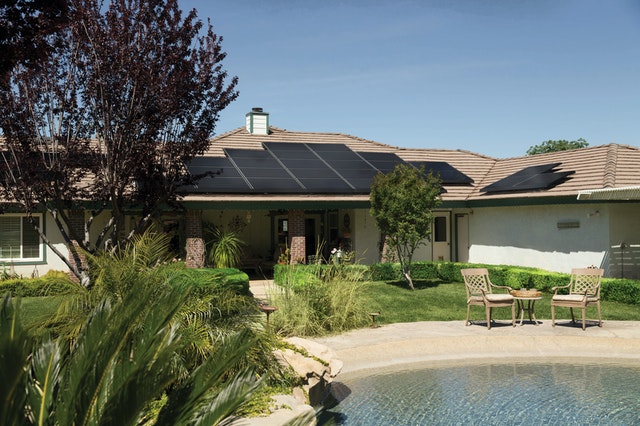
Photo by Vivint Solar from Pexels
Install Solar Panels
If paying your electricity bill eats a huge chunk out of your monthly budget, it may be time to consider alternatives for powering your home. Solar panels are becoming increasingly accessible in the United States. Solar energy is (in effect) endless in supply, and taking advantage of it has no adverse effects on the climate.
As the technology improves, the efficiency of solar panels increases. Today, homeowners can find panels that boast 20 to 23 percent efficiency ratings. As solar panels become cheaper and more efficient, the costs of traditionally sourced power continue to increase. Today homeowners in the U.S. are achieving their break-even point with solar in as short as three years.

Photo by Waldemar Brandt from Pexels
Check Your Windows
According to Energy Saver, heat loss and gain through windows is responsible for 25-30 percent of residential energy use. Testing for air leaks may be as simple as feeling for airflow along cracks, but there are other ways to know, such as when you can rattle a window (meaning a seal or frame is compromised) or when you can see daylight seeping in around a frame.
While you can update your windows for better efficiency by addressing leaky frames with caulk or weatherstripping, it may be time to replace them outright. When searching for residential window repair near you, Angi recommends making sure the professional is insured and licensed (if required in your state). Also check their customer referrals, whether online or by calling the customers cited by the company.
And remember, even if your windows are in perfect condition, you're wasting valuable energy if you leave them open or cracked while simultaneously heating or cooling your unit artificially.
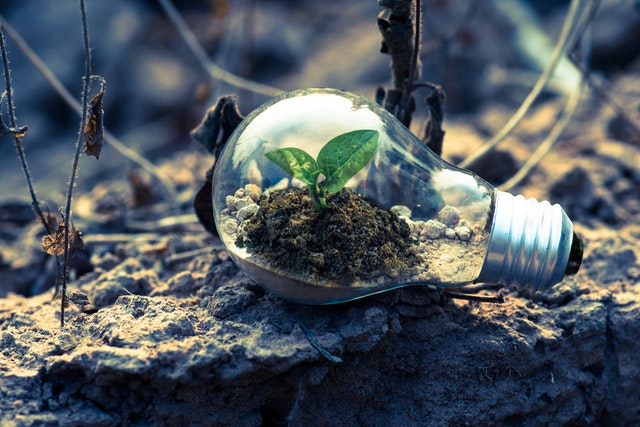
Change Your Light Bulbs
One of the simplest and most effective ways to reduce your carbon footprint is to switch to energy-efficient light bulbs. Just transitioning to LEDs can save tremendously; they last 12 times longer than conventional bulbs, use less electricity, and even if you run them 12 hours a day you can expect them to last as long as 11 years.
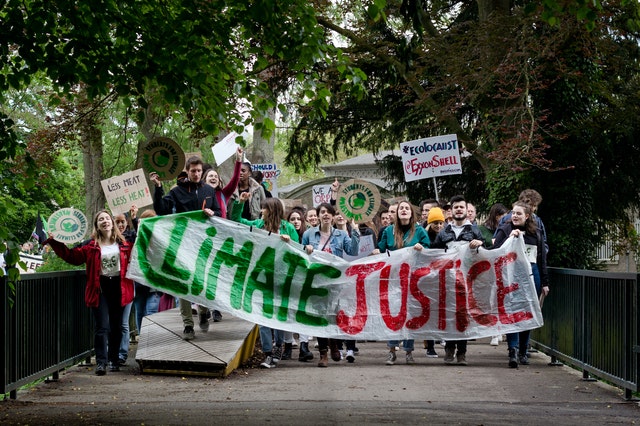
Photo by Vincent M.A. Janssen from Pexels
Broaden Your Efforts
Adjusting your homelife is a big challenge, but you can effect even bigger changes by engaging your community. Look to cities that have successfully addressed their carbon footprint and what qualities they offer — like sustainable energy sources, walkability and bikeability — and think about how you can bring about change in your own hometown. Whether it’s starting your own green business or encouraging your local government to promote change, being more actively climate-positive is sure to make a real impact that will ripple out to others.
Amanda Henderson enjoys raising awareness of a variety of important issues and sharing handy lifehacks through writing. On her Safe Children blog, she provides thoughts and resources on parenting and child safety. Article banner image by David McBee from Pexels.
During the IFC Climate Business Forum 2018 participants explain why climate action is their business, how climate solutions are our business, and why everybody should be involved everywhere.
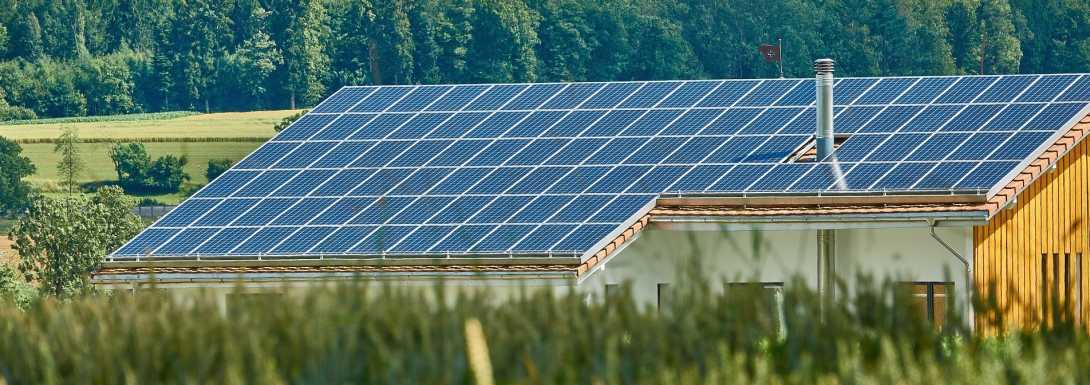
As humans, we are responsible for the earth we call home. You’ve no doubt heard about the issue of global warming, caused by increased atmospheric carbon dioxide. It has triggered a pattern of climate change that NASA explains is pretty clearly the result of human activity—so it’s going to take human activity to stop it.
“But I’m just one person.”
As with most large-scale efforts, every individual has a part to play in reversing the damage we’ve caused to our planet. And, considering even the most energy-conscious person in the United States emits more than twice the amount of carbon as people in other countries, every single action you take to reduce your environmental impact matters. Here’s the good news: You don’t have to change your entire lifestyle to lessen the damage you cause to the environment!
Small changes add up
There are many major home improvements—such as adding solar panels or a geothermal heat pump—that can slash your energy consumption. But these are expensive and impractical for most existing homes. If you’re like the vast majority of Americans, you’ll need to start small with upgrades that don’t require a complete overhaul of your home. As HomeAdvisor explains, proper insulation is one of the best ways to reduce heat transfer. Insulation comes in rolls or can be blown into an attic to keep your home’s temperature stable. Other minor energy-saving remodels include swapping your old appliances and electronics for Energy Star-certified versions and using recycled materials when possible.
There are also improvements you can make to your landscape that will have a positive impact on the environment. Planting native trees, flowers, and shrubbery is an excellent way to provide a habitat and food source for local wildlife. Further, adding trees to your landscape can help reduce CO2 levels and counter the effects of global warming. And Canopy.org asserts that a single tree delivers the same cooling power as 10 residential air-conditioning units operating almost around-the-clock.

A community effort
If you’re more of a team player, there are plenty of ways to take your cause and make it a community interest. Ideas include starting a community garden and launching a carpool. Not only does a community garden have a cleaning effect on the environment, it also provides members of your neighborhood the opportunity to enjoy fresh produce. This is important, as many seniors and low-income people don’t have regular access to healthy fruits and vegetables. If you live in the city, you can still create opportunities to grow food and plant trees—which has the added upside of providing an education on environmental topics to city dwellers (many of whom may have never seen a farm). Children especially benefit from knowing where their food comes from and how it’s grown. If a garden is out of the question, shop at your local farmers market and encourage others to do the same. Sourcing food locally cuts down on water consumption and vehicle emissions, since it isn’t traveling hundreds of miles to your table.
Carpooling is another means of having a positive impact, by reducing the number of personal vehicles on the road. You can start your own carpool by simply reaching out to people in your neighborhood or in the office where you work.
There is no wrong way to save the environment. Every change you make is a change for the better. Don’t ever feel that one person can’t make a difference because you can. Whether you choose to plant a single tree or crusade for Mother Earth, your actions truly do matter.
Banner image courtesy of Roy Buri, Pixabay. Thumbnail/article image courtesy of Pexels.
Hosted by the World Bank Group and supported by Italy’s Ministry of the Environment and Energy Security and Germany’s Federal Ministry for Economic Cooperation and Development, Connect4Climate (C4C) is a global partnership for a livable planet that connects, creates, and communicates to build long-lasting change for future generations.